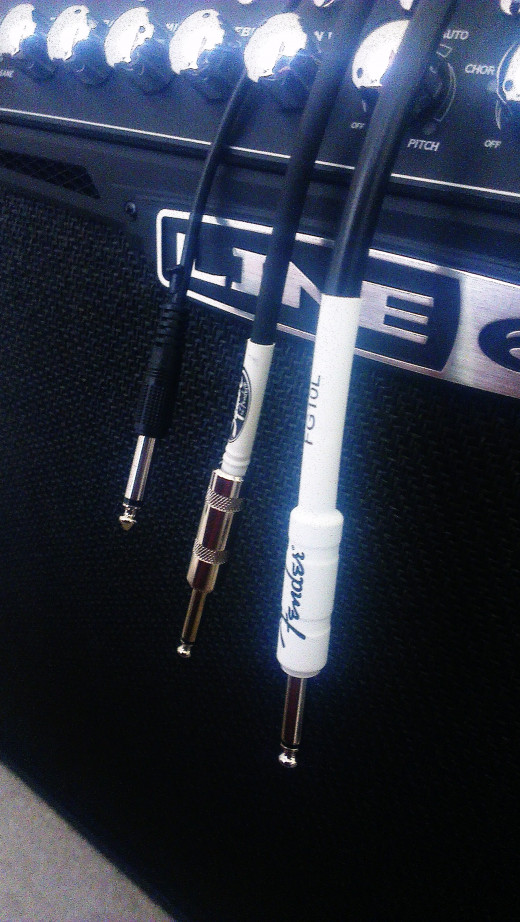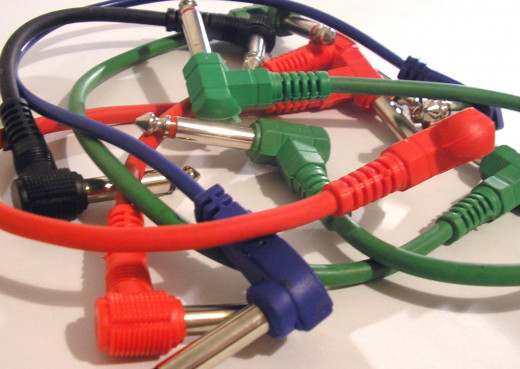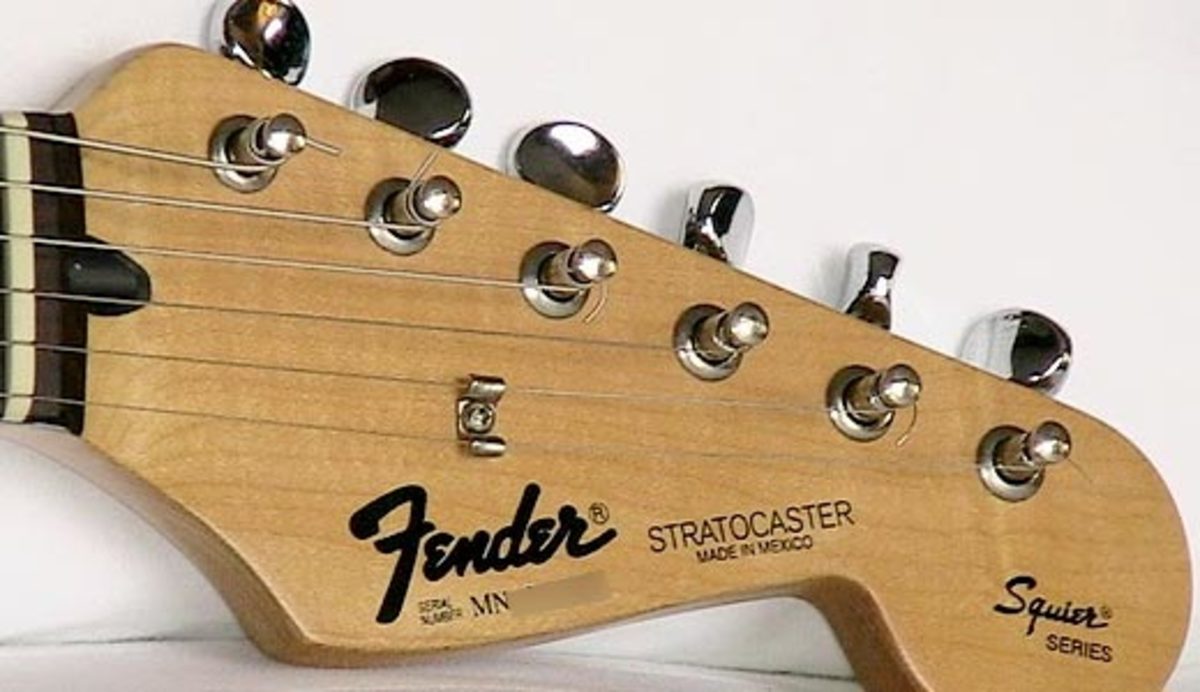Is there a difference between Cheap and Expensive Guitar (or Instrument) Cables?

Guitar cables range hugely in price from a couple of Pounds/Dollars for non branded cables to over £70/$100 for mega expensive brands such as Monster or Lava. How much of a difference is there really between these leads, are you better off just buying cheap ones or are the more expensive ones worth the price increase
What does a Guitar/ instrument cable do
First lets understand what the cable needs to do. Unlike a power cable an instrument cable has very low current, the electrons in the cable are not moving very fast, thus the cable is transferring a signal rather then power, this means a significant difference in what the guitar needs to be good at. A signal in a metal moves at roughly the speed light. The cable will be changing its voltage very quickly as the strings vibrate, this change in voltage of the cable is instantaneous because of the speed of the signal being so high. This means that the whole length of the cable changes in voltage at almost the same time, its not just pulse going down the cable as people often visualise.
So what is the theory behind expensive cables
Expensive cables are often advertised as giving clearer sound and they say this is because they use higher quality components that mean the cable conducts more easily. Hence the use of gold tips on some because gold is a very, very good conductor. The logic thus being that if the signal can be transferred easier due to the higher conductivity then there will be less loss of quality of the signal and thus a better guitar cable. Seems like good logic
But wait, we have heard this argument before
This same debate has been had recently with HDMI cables where companies were claiming the same arguments about conductivity and were selling extortionately priced cables. There were many tests done by high profile testers and it was found there was no difference in picture quality between a $1 cable and a $100 cable. However this doesn't transfer to guitar cables. A HDMI cable is digital and thus the signal either reaches the recipient on doesn't one signal cannot be clearer than another, a guitar cable on the other hand is analogue and thus there is the opportunity for signal degradation which can't happen with digital signals.
Well theory is only theory, lets look at in practice
I have compared 3 cables, one very cheap guitar cable (cheapest cable you can find), one is a middle of the road Squier cable ($15) and the other is a more premium Fender Cable ($25). Whilst I'm not comparing a ridiculously expensive cable I feel that this covers enough of a range to made reasonable judgements.
The cheap cable is awful and sounds like I was playing in another room and listening through the door, and it buzzes loudly.
The Squier and Fender cables both sound identical and both produce what sounds like a very clear and sharp tone with no buzz.
This shows something more than tone, the level of shielding on the cheapest cable is less than the other two and thus it has more interference. This is often ignored when talking about cables however is at least as important a factor as the tone of the cable if you are talking about how the cable acts overall.
There is more than just tone
The more you spend on guitar cables the better the build quality of the product. The more expensive cables will most likely last longer and thus possibly are more cost effective in the long run, or more importantly a more expensive cable may be less likely to break in the middle of a gig. However this depends on the exact model and manafactureer of cable you are looking at. Thin cheap guitar cables also tend to have less shielding and thus will get feedback from other electric fields in the room (fluorescent lights are a big cause), more expensive cables have better shielding and thus less feedback.
Conclusion
From my research I have came to the conclusion that there is a difference between cheap and expensive cables, however once you get above a certain amount then the difference becomes more negligible. Spend $50 or $100 and you will get a very good cable there is probably very little if any difference. My advice would thus be to buy anything apart from the cheapest cable, any $15+ cable will do you just fine









